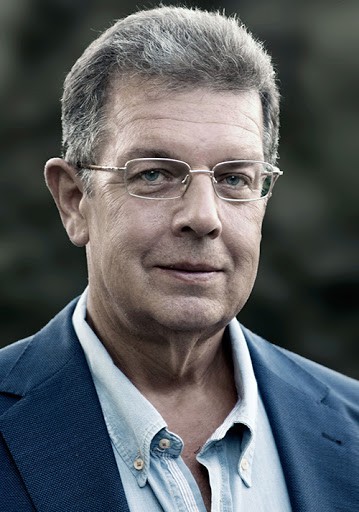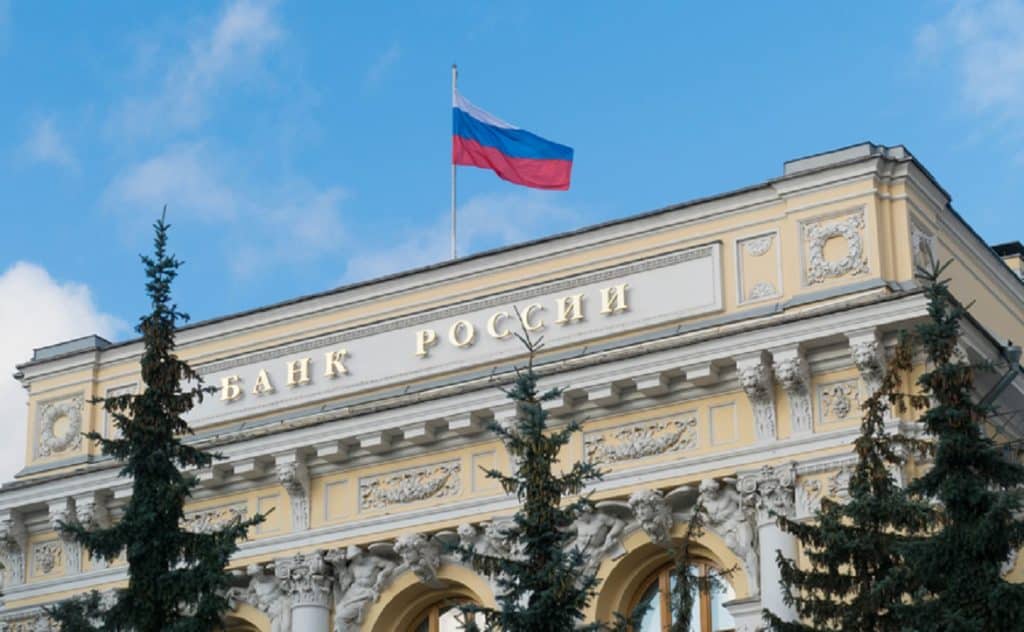World Geostrategic Insights interview with Paul Goncharoff on Russia’s new Foreign Policy Concept 2023 and its implications in global trade, as well as the prospects for implementing new international monetary and financial infrastructures in the world economy.

Native to Manhattan, Paul Goncharoff has lived and worked in Asia, the MENA region, Europe and, since the late 1990s, based full-time in Russia, achieving a solid reputation in the Russia/CIS business arena. Principal of Goncharoff LLC, he is dedicated to business management, development, integration, and consulting in relation to Russia/FSU markets, working with Russian and non-Russian companies wishing to operate in the Russian Federation and outside Russia, personally managing multicultural business, operations, and personnel in urban, regional, and remote areas of Russia/FSU.
Q1 – On March 31, Russia released its latest Foreign Policy Concept, which defines its official worldview, its main interests and goals, and how it will pursue them. The document specifically calls for strengthening and developing relations with various regional trading blocs, the BRICS, the Shanghai Cooperation Organization (SCO), the Commonwealth of Independent States (CIS), the Eurasian Economic Union (EEU), the Collective Security Treaty Organization (CSTO), the RIC (Russia, India, China) and other interstate associations and international organizations. The Concept particularly focuses on the Global South, enthusiastically pushing for the development of economic relations with Latin America, the Middle East, and Africa. In your opinion, what implications will the Concept have in terms of Russian and global trade?
A1. Russia’s new Foreign Policy Concept ( https://mid.ru/en/foreign_policy/fundamental_documents/1860586/ ) seems to be unpopular in the “collective West”, from press to politicians, especially among those who have not read it. It upholds what used to be the stated values for a free and unsanctioned trading environment with doors open to all who are willing to participate in it multilaterally. The proof is not in the talking but in the doing. Russia has, despite all the pressures, sanctions, and closed markets arrayed against it, managed to realign its global trade reach, and diversify supply chains much wider and farther than it had in the pre-sanctions past, for exports, imports and a mutitude of joint ventures in fields ranging from high technologies to agriculture. It has, in a short time entirely repositioned itself away from traditionally established suppliers in the West, to equivalent suppliers from the East and South. It only takes a glance at a map to see the evolutionary trade possibilities throughout the “Russia-friendly” world, they are impressive, to say the least. This is an ideal time for exporters throughout Asia, ASEAN, India, Africa, Latin America, and the Middle East to be moving towards Russia and Central Asia. Russia, little appreciated by the West is also a solid global player in the non-energy manufacturing sector, including automotive, engineering, defense, agriculture, aviation, fertilizers, light manufacturing, and of course energy. These areas are being actively supported with stimulus financing by the Russian government to further grow domestic manufacturing bases and to capitalize on new era opportunities. As far as the responses by the West, they are almost all uniformly onerous, no positivity of engagement, just threats of secondary sanctions and punitive tariffs which are having predictably unintended consequences, especially among trade-dependent third nations, serving to further alienate the “collective West”.

Q2 – The Concept emphasizes the West’s efforts to undermine not only Russia’s interests but also its territorial integrity, and in a sharp reversal from all previous versions, Concept 2023 does not focus on cooperation with EU countries, considered hostile to Russia. However, it looks forward to a future security order when European states, “freed from U.S. domination”, are ready to cooperate in a “new model of coexistence” with Russia. What is his opinion? Are trade and investment opportunities between Russia and Europe permanently compromised?
A2 – I can give you an example from my personal professional experience which is illustrative. I am an American, I represented the US and “Western” business interests in Russia, and also the reverse for very many years being fully bilingual. Today, I do not represent a single Western business or scientific/technology interest thanks to Western sanctions. I am busy today working with both Russian and interested non-Russian businesses or interests in the key centers of Asia, Central Asia, India, the Middle East, and increasingly Africa developing two-way trade or involvements with Russia. Nothing in the world is ever permanent, especially the business of trade and market development. My view and hope are that the European nations individually and collectively see their current geoeconomic paths lead nowhere that is productive or positive. The damage, sad to say, has been done, and done thoroughly. Destroying truth and trust is far easier and less time-consuming than building and maintaining an objective apolitical dynamic. Each of us ultimately sees the world and opportunity through a prism of self-interest. The new Concept that is now in effect, is a welcome break from the Pavlovian carrot and stick approach that has been key in a largely US-led effort of discipline and behavior modification encouraging nations to align, whether in their interests or not. Eventually, probably not in my lifetime, common sense and a factual, truthful reappraisal of the elements that engendered this current hysteria of misunderstandings, doctored facts, and misdirection will become clear, and probably only then will there be an objective and open effort by a new generation of presumably by then, unembarrassed politicians of the many European nations to diplomatically re-engage with Russia – the door will open, but only if they knock.
Q3 – Also as a response to Western sanctions, Russia calls for the creation of a new “world trade and monetary and financial system” against the alleged abuse of U.S. monopolistic financial dominance in the world economy. In your opinion, is there any progress in creating new currencies and a new international trade payments infrastructure?
A3 – Several colleagues and I have been involved in and writing about these realistic, coming developments. Today we are already seeing trans-border business being settled in national or in pre-agreed non-USD, or “unfriendly” other currencies. The reasons are well known to most of the planet by now, that holding or moving US Dollars, and to a slightly lesser extent, Euros in the current geopolitical climate is risking unilateral seizures, frozen accounts, dictated trade opportunities, and similar unwarranted weaponized currency risks. It is a difficult challenge, especially as the US Dollar is so ingrained into the financial DNA of the international financial world, that it will take time and mindset changes to wean off of the reflexive need of using it. Sanctions have both kick-started and simplified the challenge, with the abrupt shutdown of SWIFT, and the subsequent necessary de-dollarization efforts that are broadly ongoing and increasing globally. I believe that we shall see the Russian Central Bank digital ruble in use by the 4th quarter of this year once the several necessary regulations, now well fleshed-out, are passed by the Duma. The development work has been done, as has technical beta testing, now it is the legal aspects that must be finally settled. In the meantime, separate agreements have been in the works, for instance in the case of Russia/Iran to settle payments in rubles/rials and gold. Similar arrangements are in place with Russia/China, Russia/India, Russia/Brazil, Russia/RSA and others using their national currencies, or using the UAE as a broader spectrum financial hub. The big question is when an inclusive payment system will be introduced that will connect all the BRICS+++ nations with an agreed-upon representative basket of value currency. That is the game changing inflection point for the world. It will happen, it is being actively discussed, and will probably make its debut much faster than any of us might expect or foretell bringing with it a historic global financial realignment.








